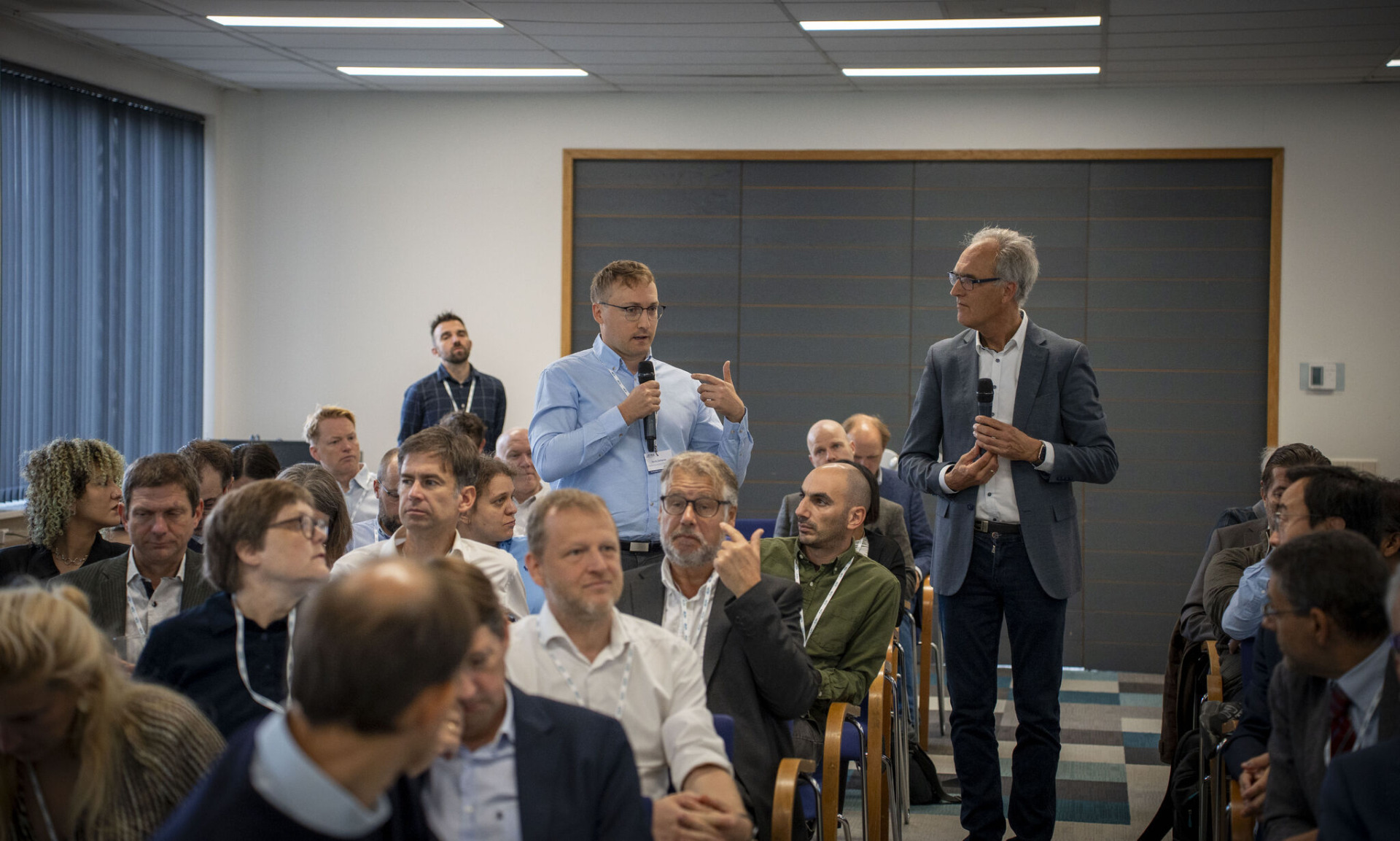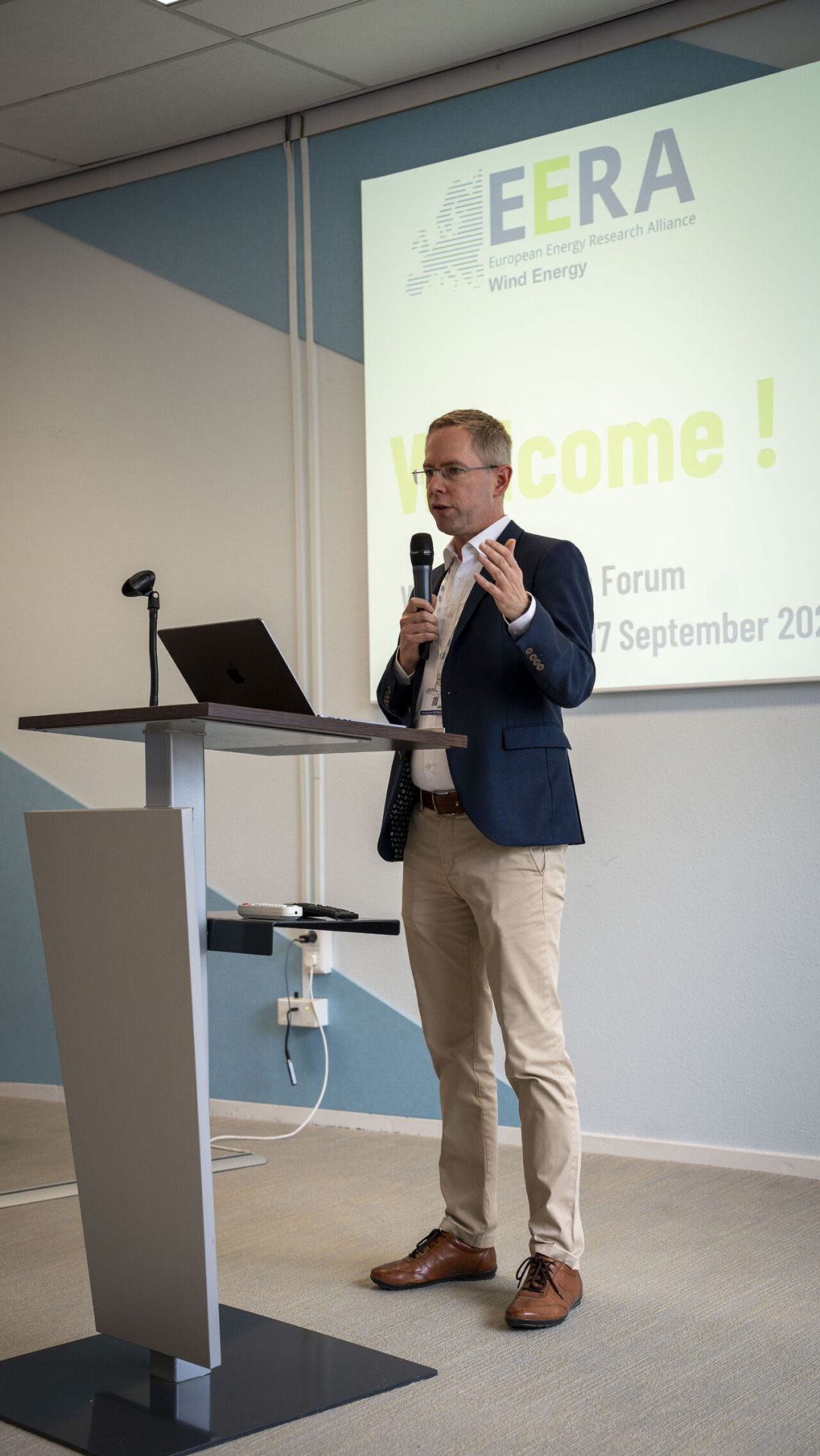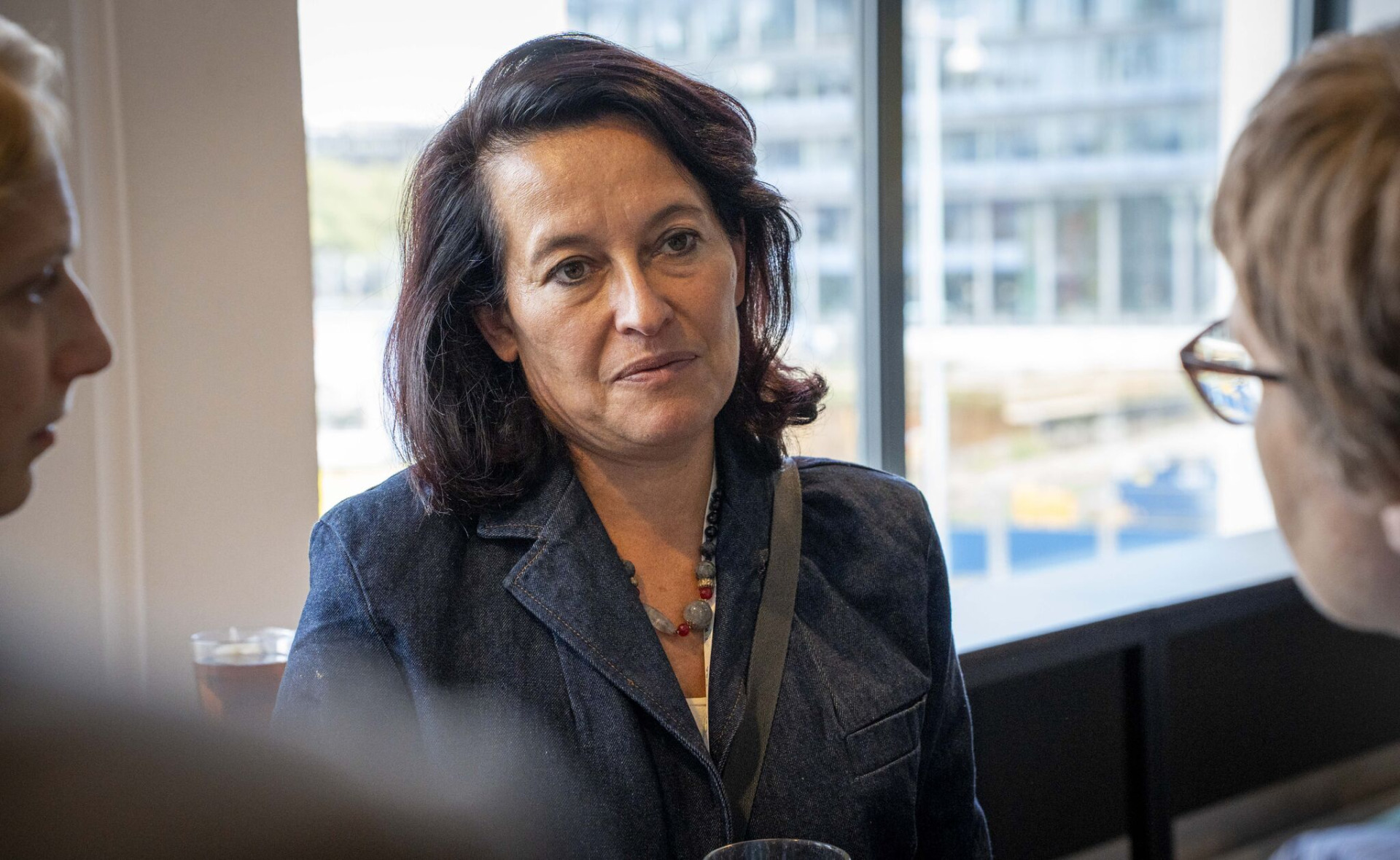For the first time, researchers and industry leaders themselves will define the priorities, strategies, and funding mechanisms for wind energy research. With a budget of €93.5 million under Horizon Europe (2026–2027), this new initiative marks a turning point in how innovation for the sector is organised and supported.
“The programme has a very new element in it,” says Stephan Barth, coordinator of EERA JP Wind. “It answers the request of the sector to have a more structured organisation of how wind energy research is funded. What really is different now is that we are in charge of defining what is needed and what research projects are carried out. And this is something we have never done before in the past.”
Amsterdam Wind Innovation Forum: Co-creating the Future
This year’s EERA JP Wind Innovation Forum in Amsterdam was the backdrop for this shift, bringing together a record number of participants from across the sector. The atmosphere was highly collaborative, with the focus on shaping the new EU wind energy programme.
Over three days, participants engaged in thematic workshops to discuss research ideas and future needs. More than 150 proposals had already been submitted by the community ahead of the event.
“We asked the wind energy innovation community to send us ideas that could be discussed at the forum,” explains Ignacio Martí Pérez. “More than 150 unique research ideas were submitted — without NDAs or anything — which shows the trust and willingness of the community to collaborate. Importantly, it recognises that we're going to need to work together in shaping the new research and innovation programme for our sector.”
By the end of the forum, the picture was clear: the community now has a shared vision of the most critical topics to drive wind energy research and innovation in Europe.
The draft call for proposals, released by the European Commission just before summer, outlines a new approach:
-
A large consortium will be established to define priorities and carry out projects.
-
The consortium will also distribute funding to third parties, allowing SMEs, universities, and industry partners from other sectors to participate through targeted calls.
-
This model is designed to simplify access and avoid fragmentation, responding directly to the needs of the research community.
“This is turning the science,” adds Stephan. “We are empowered to decide by ourselves. And that’s what we’ve been doing these last three days in Amsterdam.”
Commission’s Perspective: Competitiveness and Societal Impact
Opening the forum in Amsterdam, Beatrice Coda, Head of Unit for Clean Energy Transitions at the European Commission (DG RTD), highlighted the political and strategic dimension of the initiative:
“My key message is that we, in the current geopolitical context, in the current economic context, have to gear ourselves and work all together for a Europe that is more competitive, with a more competitive industry sector.”
The call will focus on:
-
Next-generation turbines & floating offshore wind
-
AI-driven operations, maintenance & digitalisation
-
Industrialisation, scale-up & circular solutions
-
Environmental, social & stakeholder integration
These areas align with the NeWindERA strategy, the SRIA, and the ETIPWind roadmap.
Importantly, the new programme also introduces a societal readiness dimension. Projects will increasingly be evaluated on how they address societal acceptance, stakeholder engagement, and community integration.
“In order to reach the market, it is crucial that we also study the societal impact of putting technologies into the market: societal acceptance and societal awareness,” says Beatrice. “These are really key, because ultimately this new technology and the clean transition will shape our society.”
Looking Ahead
The Horizon Europe wind energy initiative is still at the draft stage, but with a €93.5 million budget and a radically new governance approach, it is already reshaping how the sector thinks about research collaboration.
For the wind energy community, this is not just a funding call — it is a new era of empowerment, where researchers and innovators set the course for Europe’s clean energy future.


